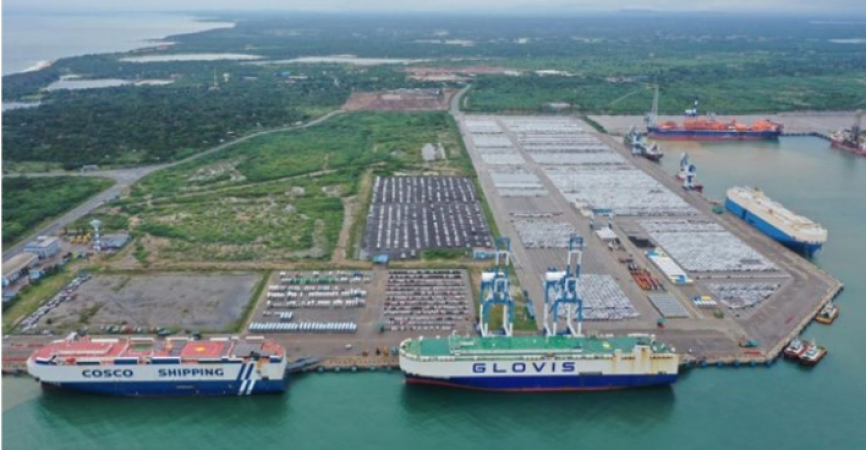
BEIJING : With remarkable levels of debt, rising inflation and dwindling foreign exchange reserves, Sri Lanka is currently going through the worst economic turmoil it has ever known. As a result, there is an acute shortage of basic necessities like food and medicine.
India and China, two regional powers vying for influence in the island nation, have stepped in to offer aid.
Up to this point, New Delhi has provided Colombo about $1.5 billion (€1.47 billion) to cover the cost of importing food, fuel, medicines and fertilisers. It has also provided an additional $3.8 billion in assistance in the form of lines of credit and currency swaps.
Beijing, for its part, has pledged to "play a positive role" in Sri Lanka's talks with the International Monetary Fund and is donating nearly 500 million yuan ($75 million, €73.35 million) in humanitarian aid (IMF) .
However, China is yet to respond to Colombo's request for loan waiver.
Beijing contributes to Colombo's infrastructure programme.
Due to its important location at the crossroads of busy shipping lanes connecting Asia to Africa and Europe, Sri Lanka has recently developed into a battleground for India and China's geopolitical rivalry and maritime competition.
Apart from having strong business ties, India and Sri Lanka also have strong ties on racial and religious lines.
However, Beijing seemed to be gaining influence in Colombo at the expense of New Delhi under the leadership of former President Gotabaya Rajapaksa and his older brother Mahinda Rajapaksa, who presided over the country from 2005 to 2015. With about 10% of Sri Lanka's $51 billion. In total foreign debt, China has emerged as both one of its largest trading partners and creditors.
After the end of a protracted civil war in Sri Lanka in 2009, China poured money into the nation, helping to fund projects such as roads, ports and airports.
In line with Beijing's Belt and Road Initiative, Sri Lanka has also developed into a major hub for the Maritime Silk Road.
allegation of debt trap diplomacy
India, historically Colombo's closest economic and political partner, is uneasy about China's close ties with Sri Lanka.
However, not all collaborations have proved financially viable, particularly with debt-financed megaprojects such as Matala Rajapaksa International Airport and Hambantota Port.
Thousands of acres of land and the Hambantota port had to be handed over to Beijing for 99 years in 2017, prompting Colombo to face allegations that China was using "debt trap" diplomacy to gain influence and control over vital resources in the nation .
According to Asanga Abegunasekera, a political and security analyst from Sri Lanka, "Research in my field last year found that China gained a considerable footprint on the island's foreign policy through infrastructure diplomacy."
Opacity, lack of transparency and high interest rates for Chinese loans raise concerns about Chinese projects, he stressed, adding that the Chinese offer loans at significantly higher rates than other lenders.
Compared to Japanese loans, which had an interest rate of less than 1%, he said, "we have borrowed 6.4 percent from China."
Sumit Ganguly, a professor of political science at Indiana University Bloomington in the US with expertise in South Asia, expressed a similar view. He claimed that "shiny infrastructure projects that were built using Chinese loans have become sand castles."
Sri Lanka's foreign policy needs reform
Despite India appearing to have gained ground, there are still some Indian-hatred feelings among some Sri Lankans due to concerns and doubts about Indian hegemony.
After Gotabaya Rajapaksa left the country and submitted his resignation last week, the Sri Lankan parliament on Wednesday elected acting President Ranil Wickremesinghe as president. Wickremesinghe has held the post of Prime Minister on several occasions and is considered pro-India.
The next administration should re-evaluate the country's foreign policy, according to Abegunasekera, and make it more balanced and pro-China than Rajapaksa's.
“We have supported international standards and ideals for a rules-based order in the Indian Ocean because we are an island nation. Working as a team with our like-minded partners, we have to support this direction. must continue to do so."
Meanwhile, Liu stressed that Beijing's main objective was to create an economic program that would benefit both China and Sri Lanka and that Beijing had no intention of competing with India in Sri Lanka.
He said that we can see how close Sri Lanka is geographically to India and how far it is from China. China is aware that it cannot compete with India for influence in Sri Lanka, but is powerless to stop India from adopting that approach.
Sri Lanka: His Highness Dalai Lama offers prayers for swift end to crisis
How will the 'Asia Cup' be held in Sri Lanka amid the crisis?